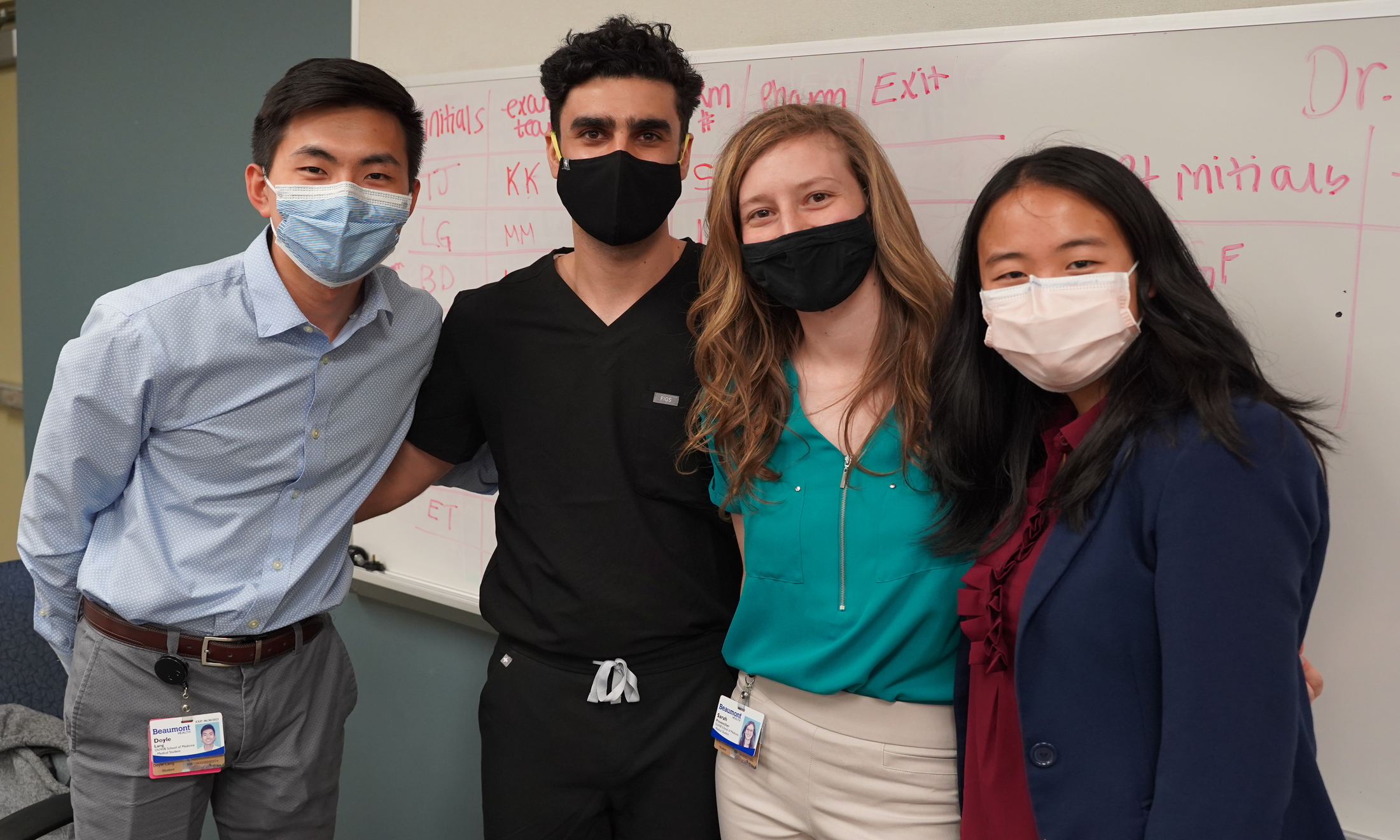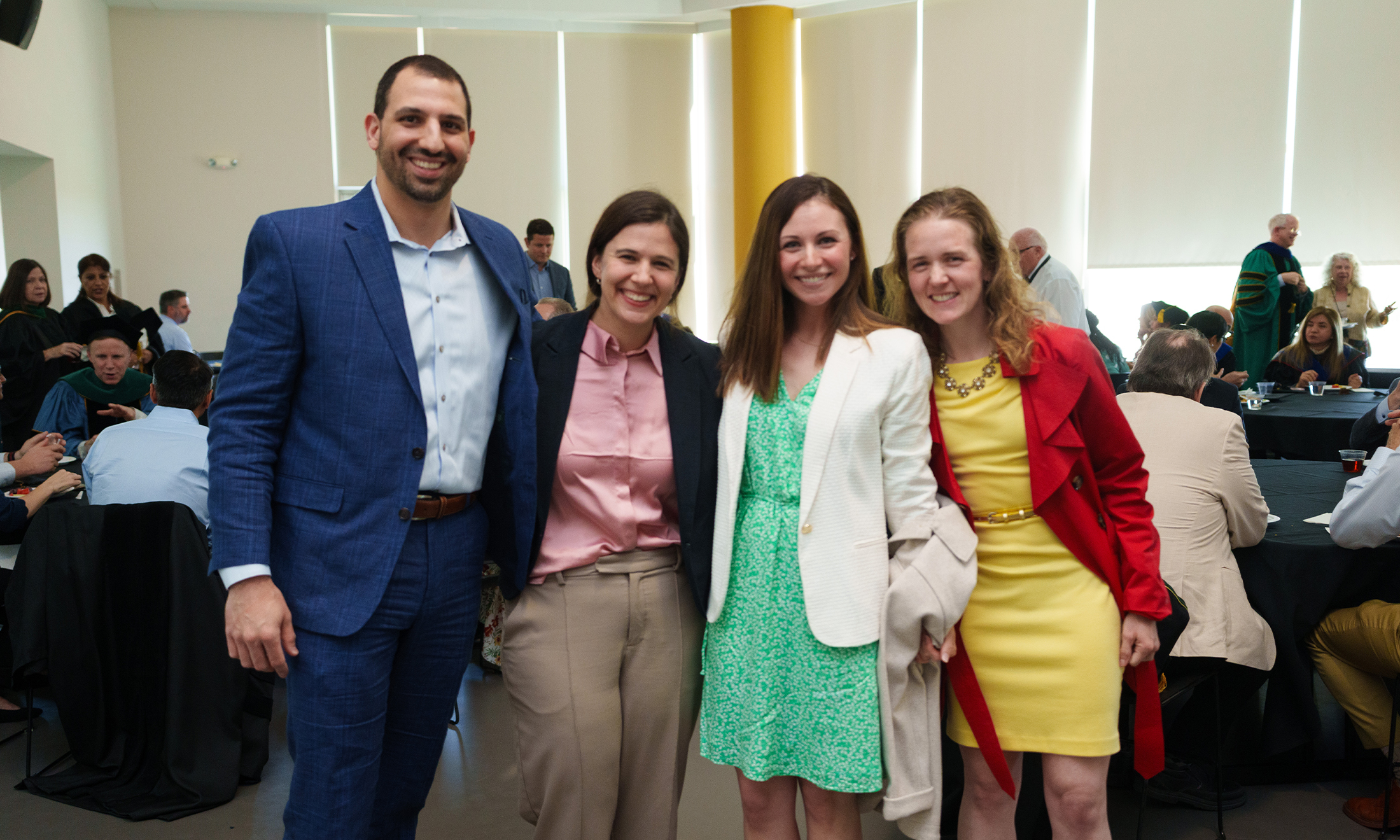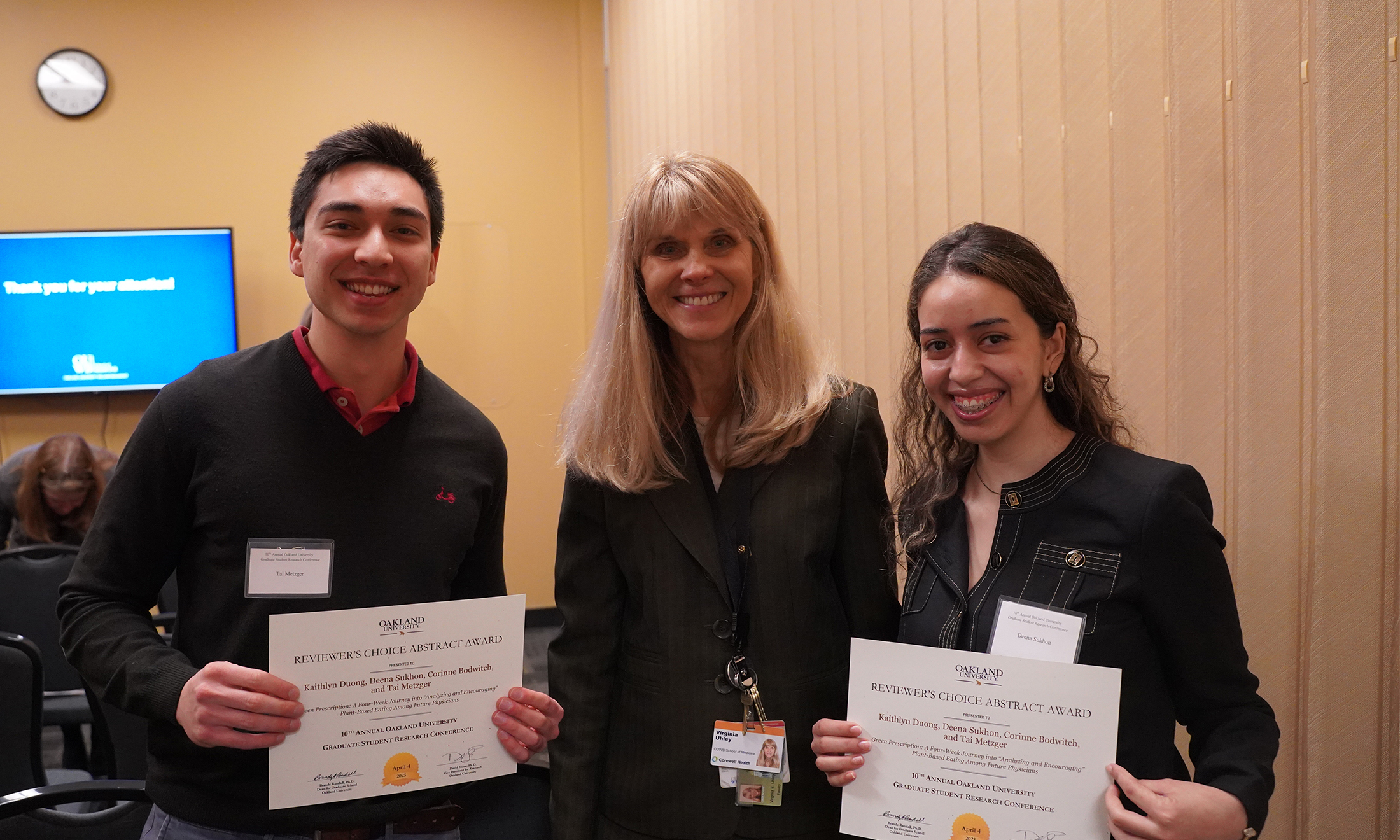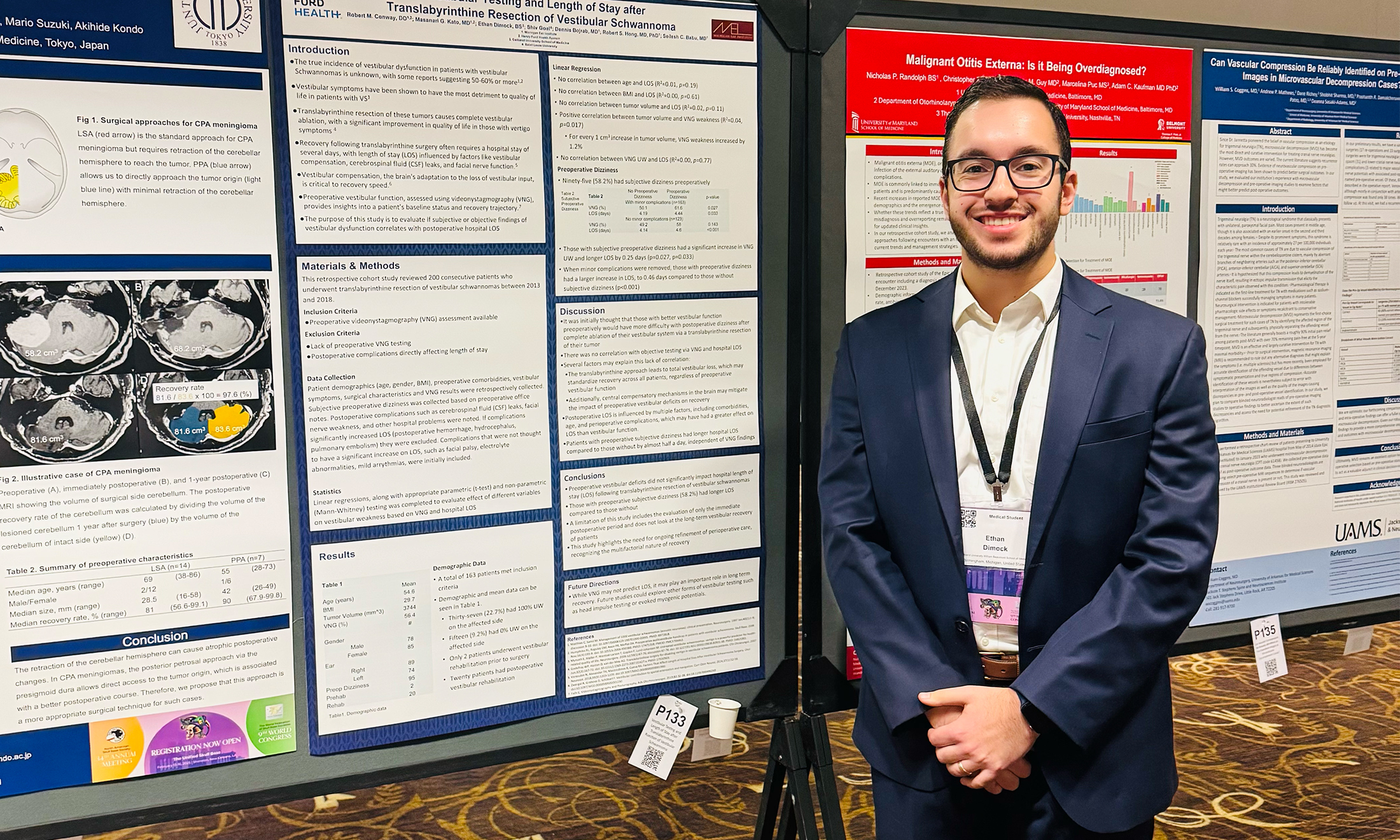OUWB’s student-run clinic marks 5 years
Partnership continues with Pontiac's Gary Burnstein Community Clinic
When sign-up sheets become available for Student-Run Free Clinic at Pontiac’s Gary Burnstein Community Health Clinic, OUWB students fill all the volunteer slots in minutes.
The reason is simple: for most medical students, it’s the very first opportunity they have to interact with patients in a clinical setting — and in a way that’s consistent with OUWB’s commitment to community.
In 2021, the Student Run Free Clinic (SRFC) celebrates five years of serving the community in partnership with the Gary Burnstein Community Health Clinic.
“This clinic just gets you so excited and happy and (you realize) this is why I’m doing this,’” says Michael Moussa, an M3 who works at the clinic.
“It’s very revitalizing and very human…it’s an honor to serve and our school does a great job in providing these opportunities.”
Other students share similar sentiments.
“When you’re in your M1 and M2 year, you really don’t have many clinical experiences at all, so that in and of itself makes the experience very rewarding,” says Yousef Ibrahim, M3 clinical advisor and part of the leadership team at the clinic.
“On top of that, you see patients who are from an underserved community; it’s rewarding seeing them come in and finding help in places that they otherwise wouldn’t have thought help was available.”
“(Medical students) really want to feel like a doctor, and I think this gives them an opportunity to do just that,” says Srikala Yedavally, D.O., assistant professor in the OUWB Department of Family Medicine & Community Health and advisor to the SRFC.
‘A nice, caring learning opportunity’
In 1997 — and after 20 years as a cardiologist — Gary Burnstein, M.D., began providing care for patients at a homeless shelter in Pontiac.
Following his death in 2003, Burnstein’s friends, family, and others rallied to honor his service to the community by establishing the Gary Burnstein Community Health Clinic.
Primarily funded by grants and fundraising events, the nonprofit clinic is housed in a 7,000-square-foot, state-of-the-art building at 45580 Woodward Avenue, Pontiac. Volunteer physicians, dentists, pharmacists, students, and administrators allow the clinic to provide for about 3,000 annual office visits.
OUWB’s SRFC Family Medicine Clinic is held in the evening on the first Thursday of every month. A recently launched SRFC Gynecology Clinic is held in the evening on the third Tuesday of every month.
By definition, a student-run free clinic is “an institution that provides care at no cost to those in our society that may not otherwise be able to afford such services. These clinics are staffed by volunteers seeking opportunities to provide care to populations such as the uninsured and homeless while simultaneously enrich their education with real-life patient care.”
SRFCs exist at 106 of 141 member institutions of the American Association of Medical Colleges, though not all models are the same.
OUWB’s SRFC Family Medicine Clinic was developed in 2015 through its Family Medicine Interest Group. The premise then was much the same as it is now: to provide a way for OUWB students to volunteer in a local underserved area. The first clinic was held in March 2016. Since then, about 400 patients have been served.
There are advisors like Yedavally, but, as the name implies, it is otherwise an operation overseen by OUWB’s future physicians.
“Students run the whole thing,” says Yedavally. “They are not only learning the medical aspect of it, but they are also learning the business aspect of medicine. For example, they have to do a lot of negotiating with different student interest groups, different physicians, and even with the clinic itself. Those can be some really challenging skills for young people to adapt to and develop.”
Leadership consists of second-year medical students. They, and the other M2 to M4 volunteer students, manage student sign-up, organization of the clinic, student assignments, and run a debrief at the end of each clinic.
Generally during each clinic, students arrive, have a brief orientation, and are assigned to patient care teams (triage, patient care, behavioral health, Spanish interpreter, or pharmacy). Each team is led by an M3 or M4 with M1s and M2s shadowing. Team members bounce things off Yedavally and other volunteer physicians on an as-needed basis.
During each shift, about eight to 10 patients are treated. Just like any other primary care office, many patients seek help with chronic disease management, such as diabetes, hypertension, etc.
“It’s a nice, caring learning opportunity,” said Ibrahim.
‘Those little things we see in clinic’
Yedavally, who also serves as clerkship director for Family Medicine Undergraduate Medical Education (UGME), says students who get involved with OUWB’s SRFC are “energetic” and “really want to get their hands wet.”
“They want to learn as much as they can, whether or not they end up going into primary care,” she says. “They want to gain the experience of seeing patients early on (in medical school), and be involved in running the clinic.”
Sarah Provencher is an M2 who currently serves as co-director with Tiffany Loh, also an M2.
“I was interested in getting involved with the Student-Run Free Clinic because I like serving the community and there’s definitely a need in Pontiac,” she says. “As a student, I thought it was a great way to fill that need.”
Ibrahim says being part of the clinic provides a unique educational experience that simply can’t be learned from a lecture or book.
“It teaches compassion and humanism,” he says. “We see the type of patient who comes in and they are so willing to let us learn…it’s a mutual type of respect where they’re relying on you and you’re relying on them, as well. It’s a type of experience you won’t find anywhere else.”
Doyle Lang, M3 clinical advisor, recalls a recent patient expressing interest in applying to a police academy but was found to have high blood pressure that first needs to be addressed.
“Learning how to deal with those types of patients is not something we necessarily learn in school,” he says. “That’s where a lot of value comes in…those little things we see in clinic.”
Justin Brox, M.D., CEO and executive director, Gary Burnstein Community Health Clinic, says he appreciates the “youthful energy” that OUWB students offer. Brox says he “absolutely loves” being able to watch the evolution of students.
“They start off and they’re super scared and then you see them start to realize that all of those weird classes they took in school actually taught them important information that has application to real humans that they’re going to see,” he says. “You see the excitement in their eyes as they realize that’s going to matter and be valuable.”
“With that you see the confidence come in and now they can go out and become someone who can help patients,” he adds.
Looking ahead
Given the success of, and interest in, OUWB’s SRFC Family Medicine and Gynecology offerings, Lang says program leadership is exploring ways to expand.
Specifically, he says, talks are underway to have additional SRFCs. Lang said the hope is that the experience of launching the SRFC Gynecology Clinic Night will streamline the process going forward.
Additionally, the team is working on a plan for a community garden on the property.
Overall, the goal is to take the relationship between OUWB and the Gary Burnstein Community Health Clinic to the next level.
“This is just a great resource for the school, and we honestly all feel like we should make even more use of it than we are now,” says Lang.
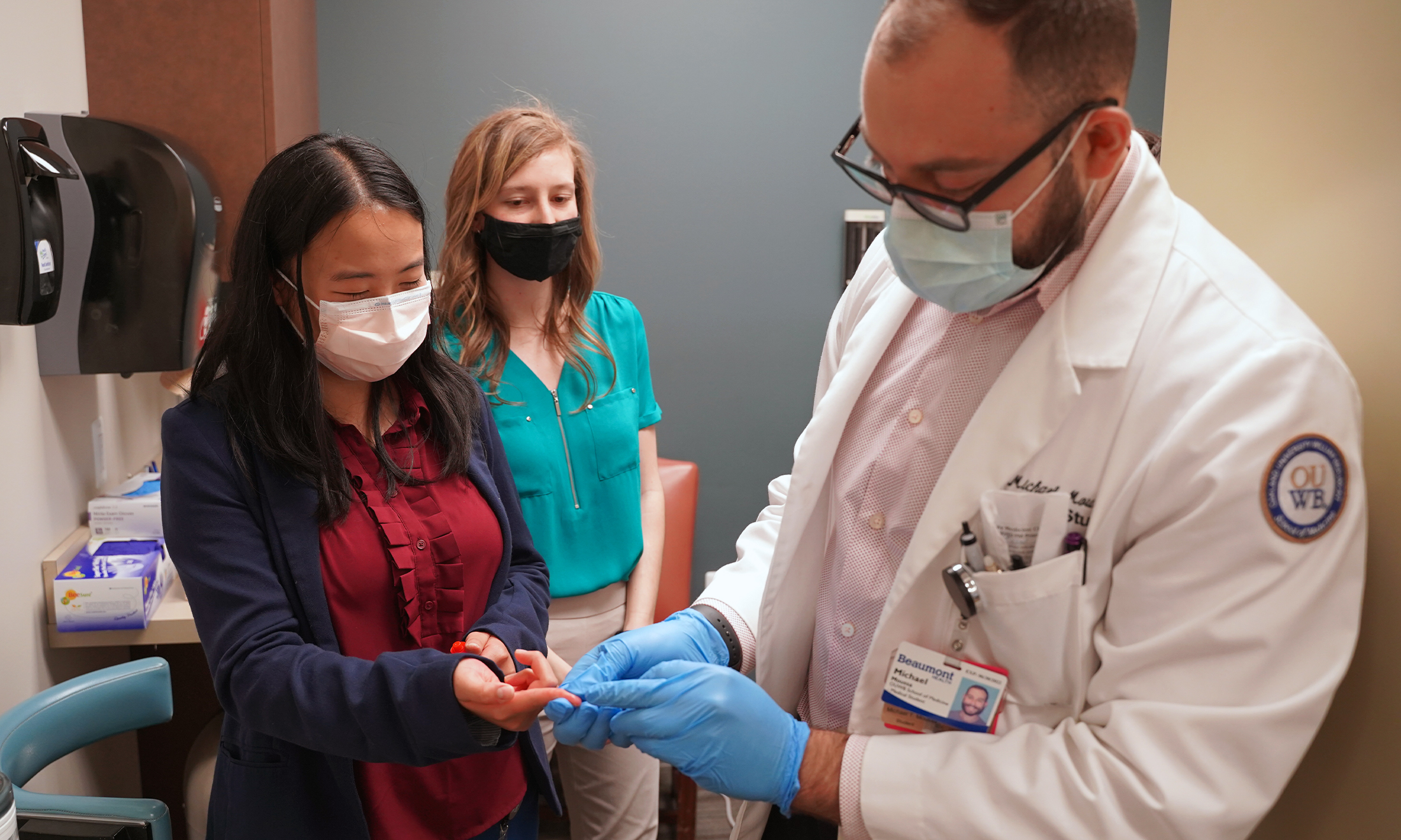
 September 30, 2021
September 30, 2021
 By Andrew Dietderich
By Andrew Dietderich